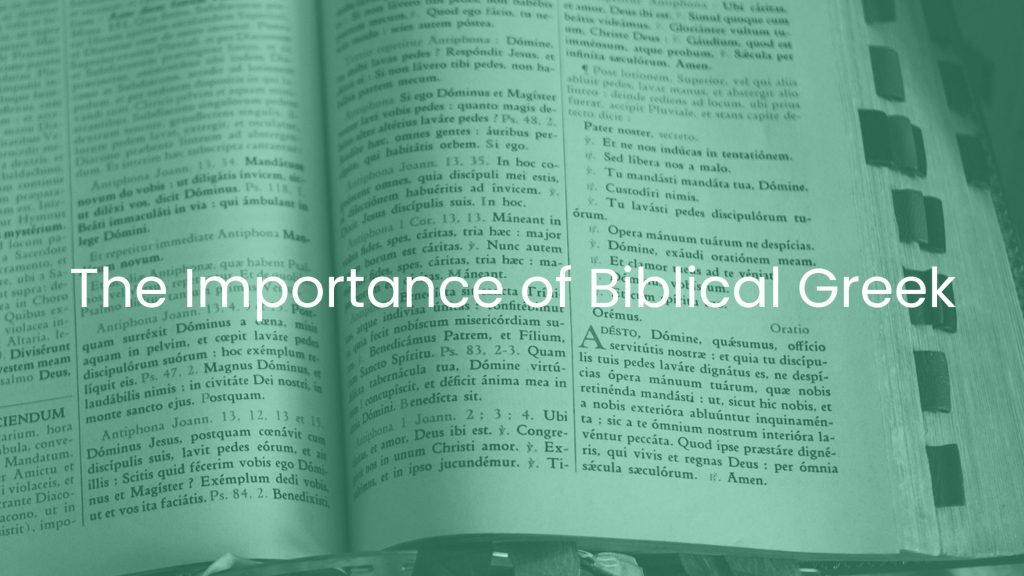|
Getting your Trinity Audio player ready...
|
When the fullness of time had come, God sent forth his Son (Galatians 4:4, ESV).
The New Testament was written in a language called “hekoinedialektos.” You might be thinking, “Hey, I thought the New Testament was written in Koine Greek.”
But if you look closely at “hekoinedialektos,” you will see “koine” stuck in the middle of the word. The larger word basically means “the common dialect.”
Or “koine” for “common” and “dialektos” for “dialect.”
And if we say, “Koine Greek is Biblical Greek,” instead of, “Hekoinedialektos is Biblical Greek,” Well, it simplifies things for everyone, especially in this Interruption, which has an alphabet letter limit.
I’ve heard pastors say, “If we understand the Greek, then we better understand this passage of Scripture.” Admittedly, I’ve used this phrase myself in Interruptions.
Perhaps quoting Greek gives Interruptions and a pastor an aura of mystery to which the uninitiated should acquiesce. Or perhaps, I am just showing off.
I could devolve into a discussion of Greek nouns and verbs and sentence structure. But I want to focus on the word “koine” and ask this question, “What’s the significance of the mere existence of Koine Greek?”
The answer: Before Koine Greek, throughout the world in ancient times, there was no common language. Consider Galatians 4:4 when it says in Koine Greek, translated into English, “When the fullness of time had come, God sent forth his Son.”
Readers of Interruptions top the intelligence scale, and I’m sure that you’ve figured this out. But how could the Gospel originating in Judea quickly spread throughout the Roman Empire without a common language?
And how could Scripture be written, copied, and carried throughout the Roman Empire without a common or Koine Greek?
Paul writes in Colossians 4:16…
When this letter has been read among you, have it also read in the church of the Laodiceans; and see that you also read the letter from Laodicea.
Evidently, the Apostle Paul wrote a letter to the Colossians, which we can read in our New Testament, and also a letter to the Laodiceans, which we can’t read in our New Testament. This indicates that Paul was writing lots of letters, some of which are included in the New Testament but probably most of which are not in our Bible.
The point: None of these letters could be easily written, sent, and read without a common or Koine Greek.
Do we understand the importance of “fullness of time?” Yes, we now know the importance of Biblical Greek!
Recently, I sent an email to a Russian-speaking pastor living in Belarus. I typed the email, translated it to Russian in Microsoft Outlook®, and then hit “send.”
Off it went—and it was so easy.
Instantaneous translation didn’t exist when the New Testament was written—but the authors had Koine Greek.

